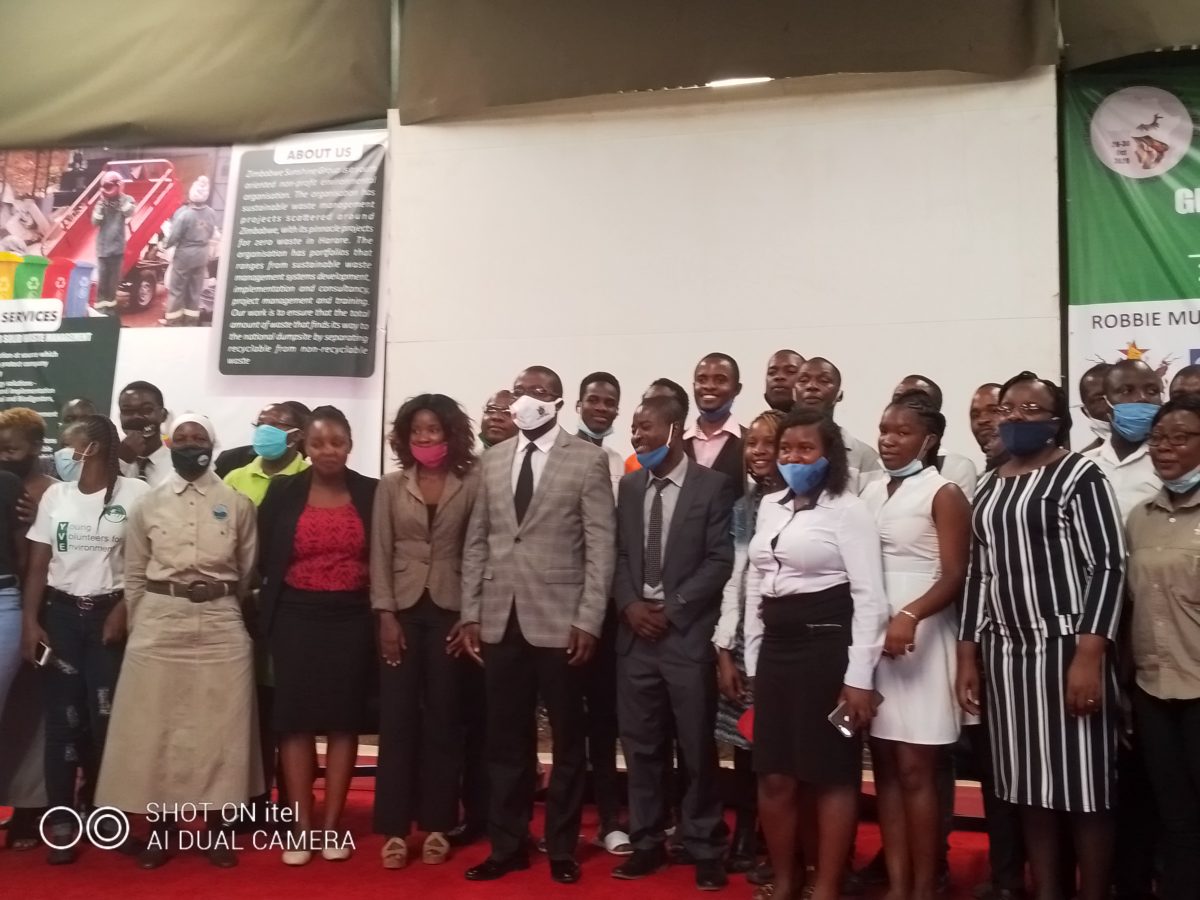The Minister of Environment, Climate, Tourism, and Hospitality Industry Hon Nqobizitha Mangaliso Ndhlovu has called on stakeholders to prioritize gender inclusion in the climate change mainframe agenda.
He made the remarks in his keynote address during the Opening Ceremony of the 9th Edition of the Africa Green Waste and Energy Expo and Conference (AGWEEC) in Harare today.
“Let me remind all that it is time to be prioritizing gender inclusion in the climate change mainframe agenda. It is not an add-on or an afterthought, but an integral part of the roadmap to achieve the global climate goals. It is time to let the young people join the fight because they will lead tomorrow and they should start practicing now. It is time to be letting the youth take the lead in creating a future with zero emissions. It is time to observe the rights of people who are in this 21st century, where all things have shifted and “north is now south and vice-versa,” Hon Ndhlovu said.
The 9th Africa Green Waste and Energy Expo and Conference, has essentially become a cardinal platform for the Climate Change discourse in Zimbabwe and the region.
Minister Ndlovu said the need to build a resilient future can never be overemphasized. Zimbabwe is facing multiple environmental management challenges which include pollution, poor waste management, climate change, deforestation and land degradation, poaching, veldt fires and biodiversity loss. In addition to the aforementioned challenges, the country also experiences occasional floods and droughts caused by climate change and climate variability.
Zimbabwe is experiencing unprecedented weather events such as heatwaves, floods, wildfires, and cyclones at different scales. Fresh on people’s minds are the devastating Cyclones Dineo, Eline and the more recent Cyclone Idai that hit the Eastern parts of Zimbabwe and Mozambique.
“This calls for action to slow down the rate at which climate is changing. The theme of this year’s Africa Green Waste and Energy Expo and Conference – “A climate-resilient future: Setting the stage for transformation” resonates with this call to action.
“The government cannot fully address these challenges on its own but calls on the partnerships and synergies with key stakeholders such as civil society organisations, corporates, donor community and communities in general as we deal with these challenges. Climate change is now central to most of the environmental challenges.”
Zimbabwe is amongst the least contributors to greenhouse gases that cause global warming and consequently climate change but is bearing its negative impacts.
The country’s contribution to climate is mainly through greenhouse gas emissions such as carbon dioxide, methane, and nitrous oxide from the energy and agriculture sectors which jointly contribute over 90% of the total emissions in the country.
“Our only hope and window of opportunity in this regard is to ensure we transition into a low-carbon future as pledged in the Paris Agreement and our NDCs commitments.
“The Government through my Ministry is working towards a low carbon and climate-resilient Zimbabwe. This vision will be achieved through full implementation of the 2017 National Climate Policy which aims to enhance the national adaptation capacity, scale-up mitigation actions, facilitate domestication of climate-related global policies and ensure compliance to the global mechanisms.”
The minister added that the Policy will be implemented through climate change education and awareness, accelerating mitigation actions by developing and adopting low carbon development pathways, Promoting technology development and transfer, capacity building and information sharing, and, reducing vulnerability to climate variability and climate-related disasters by strengthening adaptive capacity, among others.
The Environment Ministry stands ready to collaborate, offer advice and the necessary technical support both as part of its mandate as well as the National Focal Point for most multilateral climate-related facilities such as the Green Climate Fund (GCF), Climate Technology Centre and Network (CTCN), the Adaptation Fund and Clean Development Mechanism (CDM). These facilities offer both financial and technological support to parties under the United Nations Framework Convention on Climate Change (UNFCCC) and its Kyoto Protocol as well as the recent Paris Agreement.
Zimbabwe’s industrial sector has demonstrated significant mitigation potential following recent technical assistance facilitated by the environment ministry in partnership with the Business Council for Sustainable Development in Zimbabwe (BCSDZ) with financial support from the Climate Technology Centre and Network (CTCN).
The Technical Assistance saw ten (10) private sector companies undergoing energy and water audits as well as training on ISO50001, Energy Management Systems. This audit revealed low energy and water-use efficiency in the sector and recommended improvements towards higher efficiency production systems towards both local production benefits and wider environment and climate benefits.
As a Party to the international climate change frameworks, Zimbabwe conditionally committed to reducing its per capita energy sector greenhouse gas emissions by 33% by 2030 through the Nationally Determined Contributions (NDCs) towards climate change mitigation efforts. This target is envisaged to be achieved through renewable energy, energy efficiency, and climate-smart agriculture (CSA).
The Zimbabwe Sunshine Group organized the expo and is growing from strength to strength in championing environmental sustainability and sustainable development.
The organization is working towards attaining and maintaining a cleaner, healthier, and safer environment for all and improve livelihoods through sustainable activities, whilst counteracting the effects of climate change.






